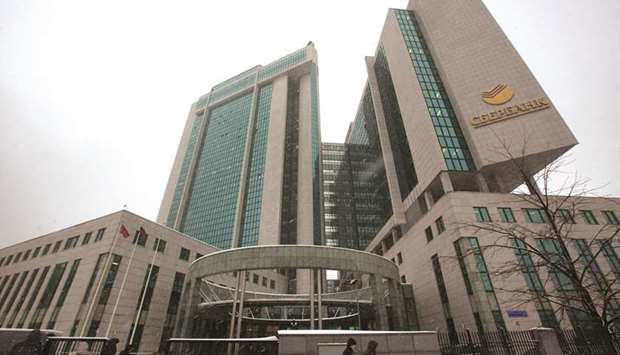State-controlled Sberbank last year handled about 1tn roubles ($17bn) in person-to-person online transfers that represented frequent payments from numerous clients to a small number of accounts, which could be linked to commercial activity, according to Mikhail Matovnikov, a senior managing director and chief analyst at Russia’s largest lender.
Although no detailed breakdown is available, that’s also an indication the funds partly went to service the “informal sector” of the economy, he said.
The volume of transactions classified as “other” – most of which are card-to-card – surged 77% last year in Russia. About two-thirds of them went through Sberbank. The successor to the Soviet savings bank, where more than 80% of Russians now hold accounts, is inadvertently turning into a platform that channels a stream of money for people who conduct their business off-the-books.
Along with the rest of Russia, “the gray economy is going digital,” said Yegor Grygorenko, partner at Bain & Co in Moscow. “That’s because transaction costs and operational risks in using online channels have become far lower in recent years compared to cash. Additionally, modest payments linked to small business don’t get on the radar of tax authorities.”
The increasing visibility is creating a Catch-22 for the government, which has long wanted to get a better grip on the “shadow” part of the economy estimated at more than a third of gross domestic product. Although the new digital dimension is giving a glimpse into activities that would otherwise go undocumented, it’s raising the risk of a crackdown on operations that may be nothing more nefarious than transfers of rent for apartments or payments to tutors and nannies.
The Finance Ministry, which oversees the tax service, had no comment when asked about the growing appeal of P2P payments. Sberbank’s press office also declined to comment on any concerns it may have. “Rumours are regularly spread on the Internet about the tax service paying special attention to such transfers,” Sberbank’s Matovnikov said. “It would be better if there was no pressure from tax authorities, because the volumes will instantly go into cash.”
With Russia slow to recover from its longest recession this century, millions have found a safety valve in the shadow economy, defined in a recent working paper published by the International Monetary Fund as “activities which are hidden from official authorities for monetary, regulatory, and institutional reasons.”
Last year, 45% of the economically active population, or about 33mn people, were part of the “shadow” labour market, up from 40% in 2016, according to a survey by the Russian Presidential Academy of National Economy and Public Administration. The convenience of card transactions, amplified by Sberbank’s reach, is proving irresistible even for people who normally prefer to leave no trail.
That also dovetails with chief executive officer Herman Gref’s vision for transforming the lender into a technological company and running an “ecosystem” with a foothold in non- financial industries.
Meanwhile, as falling interest rates in Russia put a squeeze on loan margins, the bank has also increasingly focused on raising fee income, which grew 13% last year to 394bn roubles. Card transactions were a major contributor to money earned in 2017 from commissions charged to customer accounts, according to Sberbank.
The trickle of transfers linked to the informal sector has grown to a steady stream, but it pales in comparison with the total volume of digital transactions in a country that has Europe’s largest number of internet users. Operations excluding withdrawals and payments in shops reached 19tn roubles last year, central bank data show.
Sberbank, already a key beneficiary of a purge of undercapitalised lenders by the central bank, is now just about the only game in town as financial services go digital. That doesn’t sit well with its remaining rivals such as TCS Group Holding. The head of Tinkoff Bank, as Russia’s second-largest credit-card issuer is known, complains of being increasingly prompted to make payments to a Sberbank card in mundane situations such as settling a restaurant bill.
“Retailers shouldn’t ask for payment in this way,” said Oliver Hughes, Tinkoff’s chief executive officer. “That’s cannibalising the business of card issuance, strengthens the gray economy, and undermines banking business and development of cashless payments.”

